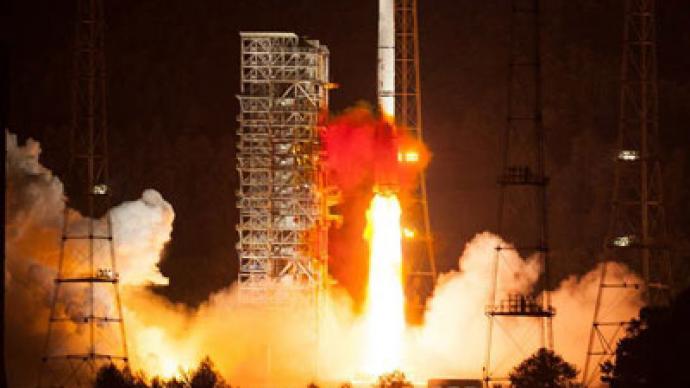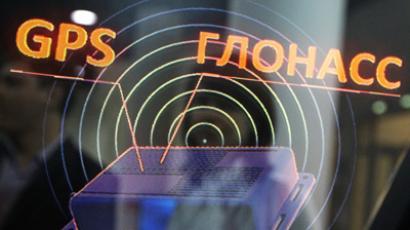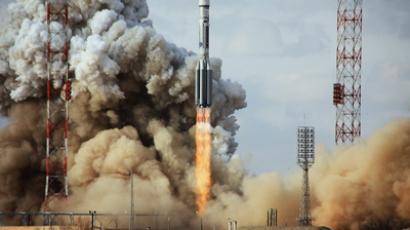Satellite Wars: China unveils ‘cheaper’ answer to GPS

China’s rapidly-expanding rival to GPS, called BeiDou, has become available to customers across Asia-Pacific for the first time. It aims to claim a fifth of the satellite services market in the region in just three years.
Previously, the satellite constellation was only used by the country's military and government services. Now, it is being commercialized.“The services now available include positioning, navigation, timing and short messages for China and surrounding areas. We hope BeiDou conquers 15 to 20 percent of the satellite services market in the Asia Pacific by 2015,” BeiDou spokesman Ran Chengqi announced at a press conference in Beijing, reported by Xinhua news agency.China says that as it expands worldwide, the state-funded navigation system will bring in revenues of more than $60 billion a year.At the moment, a user receiving BeiDou’s signal can determine their position to within ten meters. Most civilian GPS users are given positional data that is out by no more than 2 meters, but BeiDou’s makers say their services will be much cheaper than those of the US-government owned GPS.BeiDou, which is the Chinese term for the Big Dipper star, is also expanding at an impressive rate, meaning it will soon be able to bridge the performance gap.While GPS has been active since the 1970s, and has satellites in orbit that have been operating for two decades, BeiDou launched the first of its current generation satellites only five years ago.GPS comprises 30 satellites, while BeiDou already has over fifteen, and is going to have another forty in orbit by the time the network is complete in 2020, at the cost of another $6 billion, according to Ran. The greater the number of satellites, the easier it is for the system to calculate location, time and velocity of moving objects.But even if it matches the performance of the more established rival, BeiDou faces a long road to dislodging it from its dominance. As of now, 95 percent of equipment in China that uses a positioning system – and that includes mobile phones, navigators, watches and ATMs – relies on GPS services. The Chinese satellite data market is estimated to be worth almost $20 billion.While BeiDou cannot be expected to supplant its successful predecessor instantaneously, many devices may be manufactured to receive signals from both of the systems, particularly with the government encouraging local producers to support the system. BeiDou receiver chips are currently more expensive than those for GPS, but prices should come down as they become more common.Even if BeiDou does not hit its financial targets, it is still likely to be supported by Beijing at the behest of its armed forces, who are reluctant to rely on a foreign signal in all of its key military operations and equipment. BeiDou’s first incarnation – which was launched in 2000 and consists of 4 satellites – was a largely military program.The global satellite navigation segment has become a crowded marketplace over the past decade, and looks to become even more so. Russia recently completed its constellation of Glonass satellites (though it has since lost one). Europe is unrolling its Galileo system, while other countries such as India and Japan plan to develop at least regional navigation networks.Whether these systems can truly compete with already accepted and functionally efficient GPS, or whether they will remain vanity projects for emerging and powerful states, will be the big question over the next decade.














